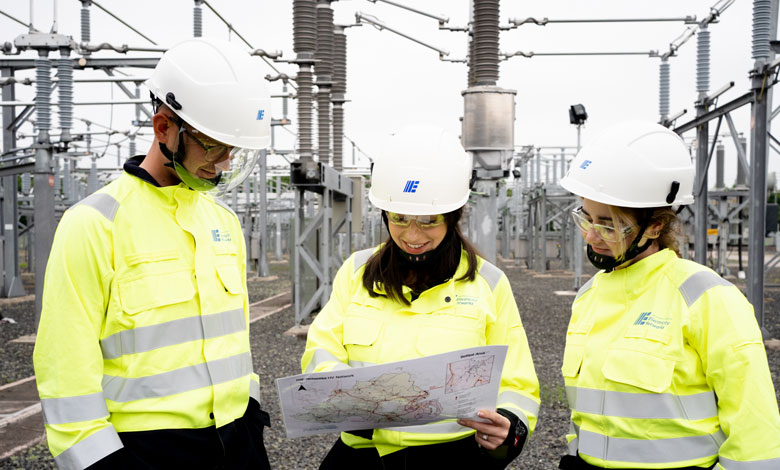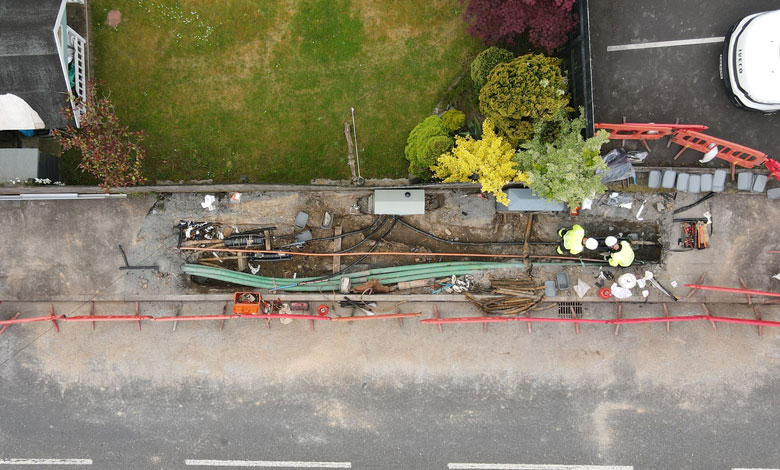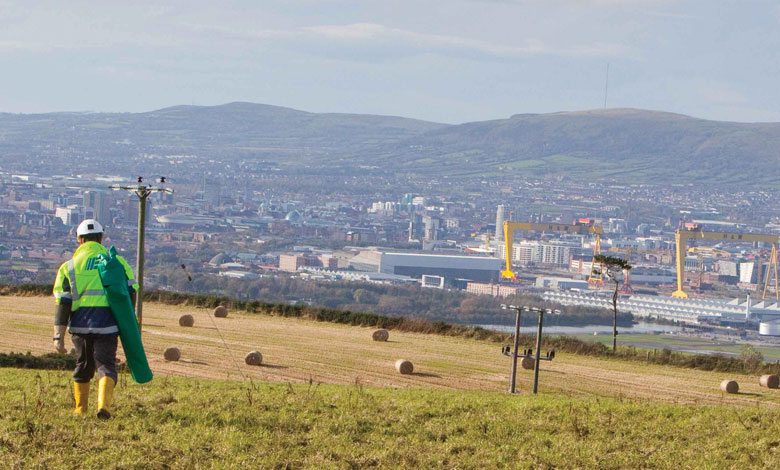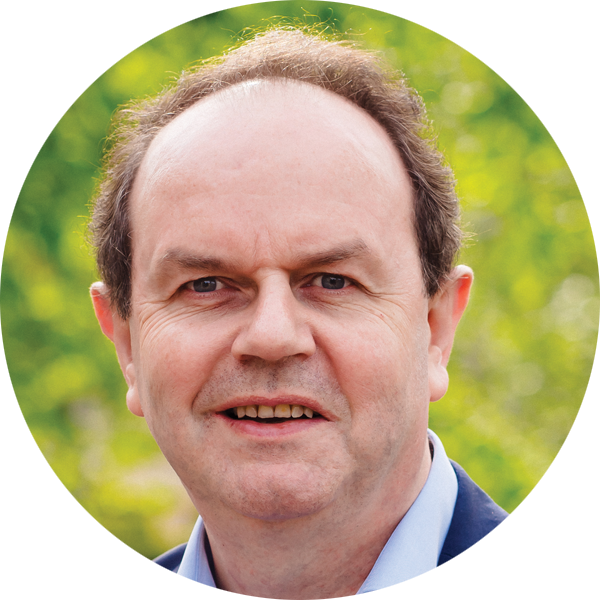
Evolution not revolution: A skills perspective on advancing net zero
28th May 2024
2030 target to be met by two renewable electricity support auctions
28th May 2024Investing in the future
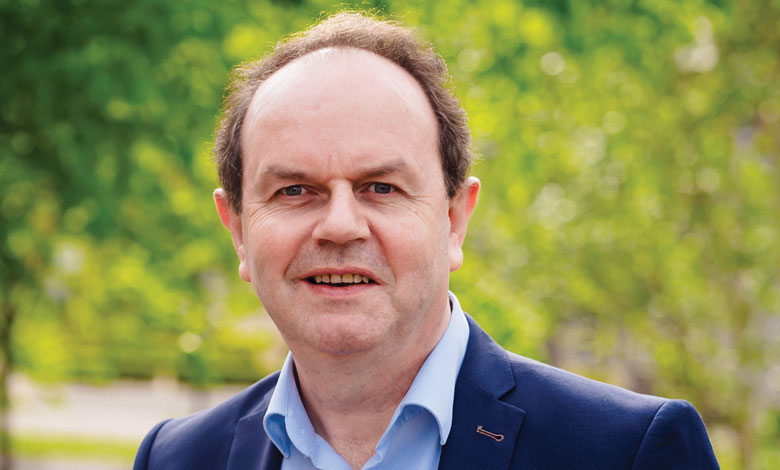
As NIE Networks prepares to invest up to £4 billion upgrading Northern Ireland’s electricity network over the next decade, newly appointed Finance Director, Ted Browne, outlines the organisation’s role in delivering a reliable and sustainable energy system for all.
Browne brings over 25 years’ finance and utility experience to NIE Networks at a time when the organisation is embarking on one of the largest public sector investments in the history of Northern Ireland.
Having previously worked for the Republic’s electricity network owner, ESB, Browne has extensive experience in finance strategy and business transformation, including responsibility for ESB’s international debt investors who lent £5 billion to ESB.
Recognising the transformational power of strategic investment, he believes that the opportunity presented by the journey to net zero for NIE Networks and Northern Ireland as a whole is one that must be fully grasped.
“As we approach a net zero future, the role of the electricity network will undergo fundamental reform involving the investment of billions of pounds into the local economy. We are at a critical point in time in the company’s history and we are working with a great number of stakeholders to ensure we get it right,” Browne explains.
The company collaborated with the Department for the Economy (DfE) and other stakeholders on developing Northern Ireland’s Path to Net Zero Energy strategy, which was published in December 2021. The strategy sets ambitious targets for net zero carbon energy, while seeking to maintain affordability, and key elements of the strategy are enshrined in the Climate Change Act (Northern Ireland) 2022.
NIE Networks is the owner of the electricity transmission and distribution networks in Northern Ireland, transporting electricity from generators to over 910,000 customers. Its employees maintain and extend the electricity infrastructure across Northern Ireland, connect end user and generation customers to the network and ensure that equipment is safe and reliable. It also provides electricity meters and metering data to suppliers and market operators and develops and reconfigures the electricity network to facilitate the connection of further renewable generation.
However, much of that is due to change according to Browne: “Our future network will need to not only deliver electricity to homes, farms, and businesses but also receive significant amounts of renewable generation from multiple sources across Northern Ireland. It is a large body of work, one that will require a significant private sector investment in Northern Ireland and will see NIE Networks evolve to be a fully active Distribution System Operator (DSO).”
Interest to investors
Browne outlines how net zero is also an area of significant interest to investors: “The production of green energy is a growing market and Northern Ireland is already of interest to those wishing to invest in this area. Wind farm investors, for example, are eager to avail of our ever-prevailing Atlantic winds. To date, NIE Networks has successfully connected around 26,400 renewable generators, significantly increasing the available capacity and resulting in approximately 1.8GW of renewable electricity connected to the network which supplied 47 per cent of Northern Ireland’s annual electricity consumption in 2023.”
The net zero target is to have 80 per cent of annual electricity consumption from renewable consumption by 2030 and 100 per cent by 2050.
“Helpfully, there continues to be interest from generators to connect potential further renewable capacity to the network. However, investors need to be assured that they will be able to connect that generation to the network before they proceed. In order to provide the required assurances, we must ensure that the capacity to connect low carbon technologies is increased and that we can enable a net zero future.
“At the same time, NIE Networks needs to map the priority areas using data from the market and digital technology to efficiently plan network upgrades in such a way as to maximise the investment and renewable outputs possible,” Browne explains.
Many elements of NIE Networks’ own Networks for Net Zero report are mirrored in the DfE’s Path to Net Zero Energy. There is strong alignment between the two strategies and NIE Networks’ draft Business Plan for the next seven years (RP7).
NIE Networks’ RP7 Business plan submission is currently with the Utility Regulator which requested an investment of approximately £2.6 billion over the next seven years. The plan outlines the investment required to facilitate the decarbonisation of society, maintain a safe and reliable network and ensure customers continue to receive excellent customer service. The Regulator’s final determination is due in October 2024.
Impact on society
Net zero will transform how the people of Northern Ireland live and work as the electrification of heat and transport will play a fundamental role in meeting the 2050 target.
Browne explains: “The challenge for NIE Networks is to make sure that customers are supported in their own efforts to cut emissions and live a more sustainable life. So, whether you wish to install an electric vehicle charger in Belfast or a heat pump in the Sperrins, NIE Networks needs to enable that to happen. That will be a significant challenge for us as society evolves to become overwhelmingly focused on renewable living.
“In years to come it is possible that we will begin to see communities introducing their own generation and, in addition to homes having electric vehicle chargers and heat pumps, it will become typical for a property to have battery storage facilities. Indeed, we are already seeing an increase in interest from customers connecting integrated micro generation and battery storage.
“Consumers will become more involved in managing their own electricity consumption. To support this, NIE Networks needs to increase digital visualisation on the network, particularly the distribution network, which did not previously require this level of monitoring. In turn, the people of Northern Ireland will be able to trust that the electricity network will continue to be reliable as they use electricity to replace fossil fuels in their homes, businesses, and transport.”
The company will evolve from a Network Operator to a Distribution System Operator (DSO) managing the two-way flow of electricity, supply of data, and digital mechanisms to facilitate consumers to manage their electricity consumption in a similar manner to their heating system.
In 2023, the board approved changes in the leadership team structure in readiness for RP7 and in recognition of the organisation’s transition to a Distribution System Operator (DSO). A Future Networks Director and business function was established along with the recruitment of a Chief Information Officer to give focus to the part that technology and data will play in the future.
Staffing and capability resource
The delivery of the increased level of investment will require a considerable increase in our workforce, contractors, and the development of new capabilities.
NIE Networks has already begun to recruit and enhance capabilities estimating an increase of 35 per cent in their current workforce to bring the total number of people employed to around 2,000 by 2030.
A recruitment drive for both newly qualified and experienced engineers closed on 6 May 2023. Browne explains that it is not solely related to electrical roles: “In addition to electrical skills, there is a considerable increase in the supporting functions; surveyors, procurement, finance, IT and data specialists. To support our own efforts in sustainability, and ensure we have optimum reporting mechanisms for investors, there are also opportunities in sustainability and ESG roles.”
It is a major area of focus for anyone involved in the energy transition so the market is competitive – not just in Northern Ireland but across the world.
Vital talent pipelines for the company are their student opportunities; traineeships, apprentice academy, higher level apprenticeships and scholarships for undergraduates. NIE Networks has an employee retention rate of 98 per cent and considerable development opportunities for career progression. Several of the Directors started out their career as apprentices in the company and it is not unusual to meet employees with more than 30 years’ experience.
NIE Networks has plans to develop and expand these talent pipelines, alongside the learning and development function, over the coming years.
“Over £190 million was contributed to the Northern Ireland economy in 2023 and this will only increase as the years progress.”
One key challenge for the green energy sector as a whole is the societal culture, as Browne explains: “The majority of young people are persuaded to follow a university route without considering alternative options that may be more appropriate for them. While highly skilled graduates will always be required, the industry will undoubtedly rely on young people coming through the traditional skills route. The challenge lies in persuading future talent – and their influencers – to realise the potential in the vocational route and take up traineeships and apprenticeship.
“Skills are a fundamental enabler for the net zero target. If we do not have enough people with the right skills it will not happen. The green energy sector has a hugely exciting future ahead but we need the best skilled talent to ensure the sector and the wider economy in Northern Ireland reaches its full potential. It is important that all employers within the sector, government and the education sector collaborate effectively and take ownership of developing the correct talent pipelines.
“It is the right thing to do for our people and for the planet.”
The finances
As a gateway for net zero the company is investing significantly in the electricity network to increase its capacity and resilience for the benefit of customers. Underlying capital expenditure was £219 million in 2023, up £32 million or 17 per cent on 2022. Supporting this investment, and future projected investment of up to £4 billion over the next decade, will require careful financial management to deliver and fund this investment cost effectively for the benefit of customers.
Browne is keen to emphasise the benefit to Northern Ireland: “Over £190 million was contributed to the Northern Ireland economy in 2023 and this will only increase as the years progress. NIE Networks will ensure that, through the right planning and investment, costs for customers are minimised and they are supported in their own efforts to cut emissions and live a more sustainable life.
“It is dependent on good partnership and collaboration with industry participants, customers, and other stakeholders.”
Browne concludes: “It is a once in a generation opportunity and we have a responsibility to get it right for the people of Northern Ireland and future generations. I am personally enjoying working with the capable and committed people in NIE Networks and key stakeholders to enable the delivery of a sustainable energy system for the benefit of Northern Ireland and its economy.”
|
Ted Browne
Ted Browne was appointed Financial Director of NIE Networks in September 2023, having previously served in a variety of senior roles for ESB, including as Financial Controller of ESB’s Engineering and Major Projects division, and as Chief Financial Officer for ESB Networks. He began his career as a senior auditor for KPMG Ireland in 1988 and is a fellow of the Institute of Chartered Accountants. Outside of work Browne is enjoying getting to know Northern Ireland and its people. He enjoys travelling,almost all sports, and spending time with his wife Deirdre and their four children, who he explains keep them busy in a good way. |
NIE Networks
W: www.nienetworks.co.uk
LinkedIn: NIE Networks

